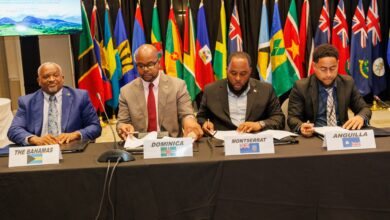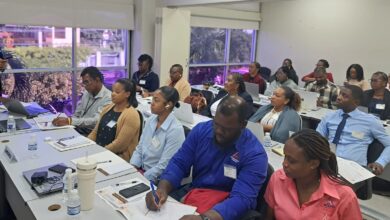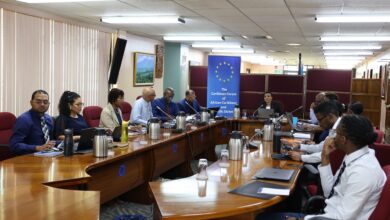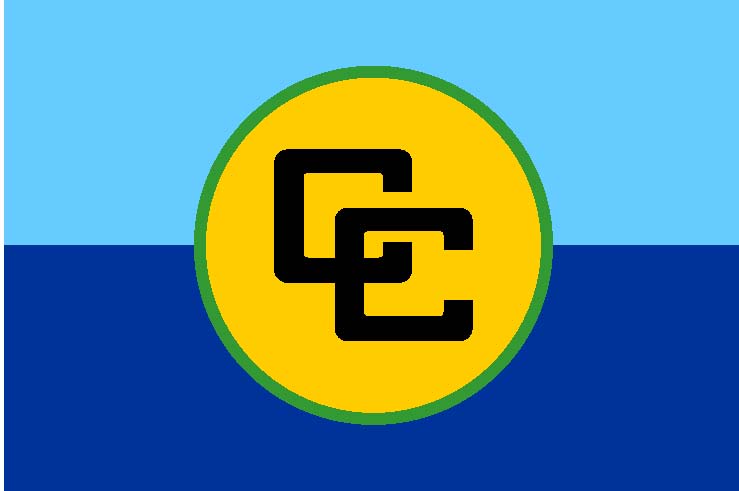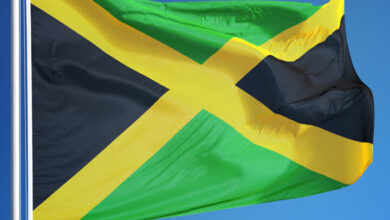(CARICOM Secretariat, Turkeyen, Greater Georgetown, Guyana) A case for the inclusion of artisans, nurses, domestics and teachers to move freely as skilled nationals under the CARICOM Single Market and Economy (CSME), will be presented to Heads of Government of the Caribbean Community when the 27th Regular Meeting of the Conference convenes on 3-6 July in St Kitts and Nevis.
In reporting on the progress made in the Region since the establishment of the CARICOM Single Market on 1st January last, CARICOM’s Assistant Secretary-General for Regional Trade and Economic Integration, Mr. Irwin La Rocque said on Tuesday 20 June, that 3,500 free movement certificates have already been issued by Member States.
He noted that as part of the exercise to expand the categories of skilled persons eligible for free movement under the Treaty, several Member States have conducted national research and will present their findings to the Conference for consideration.
The Free Movement of Goods, Services, Capital and Persons, as well as the Right of Establishment are enshrined in the Revised Treaty of Chaguaramas as major components of the CSME. Heads of Government had approved free movement for an initial five categories of skilled nationals with others to be added based on recommendations from the CARICOM Council for Trade and Economic Development COTED). Persons now enjoying “free movement“ status include Artistes, Musicians, University Graduates, Media Workers and Sports Persons.
Pointing to the operation of the Caribbean Court of Justice (CCJ) and the Caribbean Regional Organisation for Standards and Quality (CROSQ) as two critical pillars of the CSME, Mr La Rocque stressed the importance of CROSQ in ensuring that the highest standards and quality are maintained. This is especially important in the context of the goods and services produced intra-regionally, as the Region seeks to become a competitive trading bloc in the global sphere, he affirmed.
Mr. La Rocque also reported that the Region has made significant progress in bringing on course other equally important agencies, including the CARICOM Agriculture Health and Food Safety Agency for which work is underway.
Regarding the question of certification of skilled personnel, he explained that while some Member States already had national accreditation bodies in place, there still remained outstanding legislative work within other CARICOM countries to give effect to the establishment of a Regional Accreditation body.
On the issue of competition and competitiveness which are expected to heighten among entrepreneurs under the CSME, Mr. La Rocque said July 2007 had been earmarked for the establishment of the Regional Competition Commission which will be seated in Suriname. The Commission will be mandated to prevent the hostile takeover of small businesses and to stave off the creation of monopolies under the CSME.
The CARICOM Single Market was officially launched at a formal ceremony on 30 January in Kingston, Jamaica where the first six Member States signed on to implement the Single Market. These were Barbados, Belize, Guyana, Jamaica, Suriname and Trinidad and Tobago. Six other Member States, Antigua and Barbuda, Dominica, Grenada, St Kitts and Nevis, St Lucia, and Saint Vincent and the Grenadines have signed a Letter of Intent to join the Single Market by the end of June 2006.
With respect to the three other Member States, The Bahamas is not yet a part of the Single Market arrangement and Montserrat, a British Dependency, awaits the necessary instrument of entrustment from the United Kingdom government in order to participate. Haiti has not yet completed its accession to the Revised Treaty of Chaguaramas and is therefore not a participant in the Single Market.
CARICOM Secretary-General Mr. Edwin Carrington expressed optimism that the remaining Member States will sign onto the Single Market by the 30 June deadline, before the upcoming Meeting of the Conference. He said, “We need the Single Market to take us further and to safer ground,” and added, “We need all hands on deck.” Heads of Government have set December 2008 for the implementation of the Single Economy.

